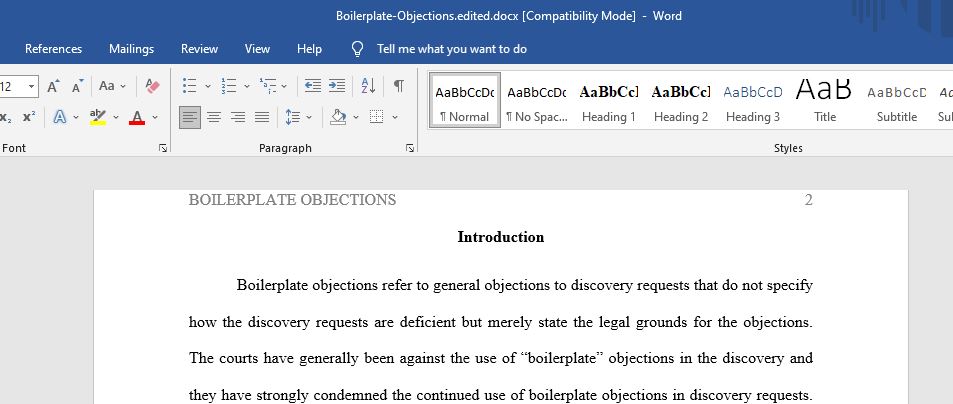Boilerplate Objections
CASE: Wesley Corp. v. Zoom T.V. Prods., LLC, No. 17-10021, 2018 U.S. Dist. LEXIS 5068 (E.D. Mich. Jan. 11, 2018). FACTS: In Wesley Corp, Plaintiff sought, among other things, a Motion to Compel Defendants’ responses to Plaintiff’s discovery. Plaintiff argued that Defendants’ use of boilerplate objections in the returned discovery requests were improper and constituted obstructionist behavior. Plaintiff asked the court to compel Defendants to provide proper responses to Plaintiff’s previously submitted interrogatories and requests for production. The court denied Plaintiff’s motions without prejudice and gave Defendants a second chance to adjust their responses. The court also warned both parties that additional intervention by the court in this discovery dispute would likely result in significant sanctions. INSTRUCTIONS: Beginning with Wesley and using available reference and case materials found on Lexis or in other sources, discuss: Why courts, in general, have such a strong distaste for boilerplate objections;What Federal Rules of Civil Procedure apply to boilerplate objections; andUnder what circumstances might a party find themselves sanctioned by the court for their ue of boilerplate objections in discovery responses. EXPLAIN FULLY.
To do a thorough job on this assignment, you need to first analyze the case as it was held: What was the case about, briefly? What did the plaintiffs want? what was the rule at the time? How did the court apply the elements of the Rule to the facts of the case? After you have done this, then you would present the new, amended rule. You should apply the new elements to the facts of that case and determine how the case would have come out differently or not.
Answer preview:
Word: 900

